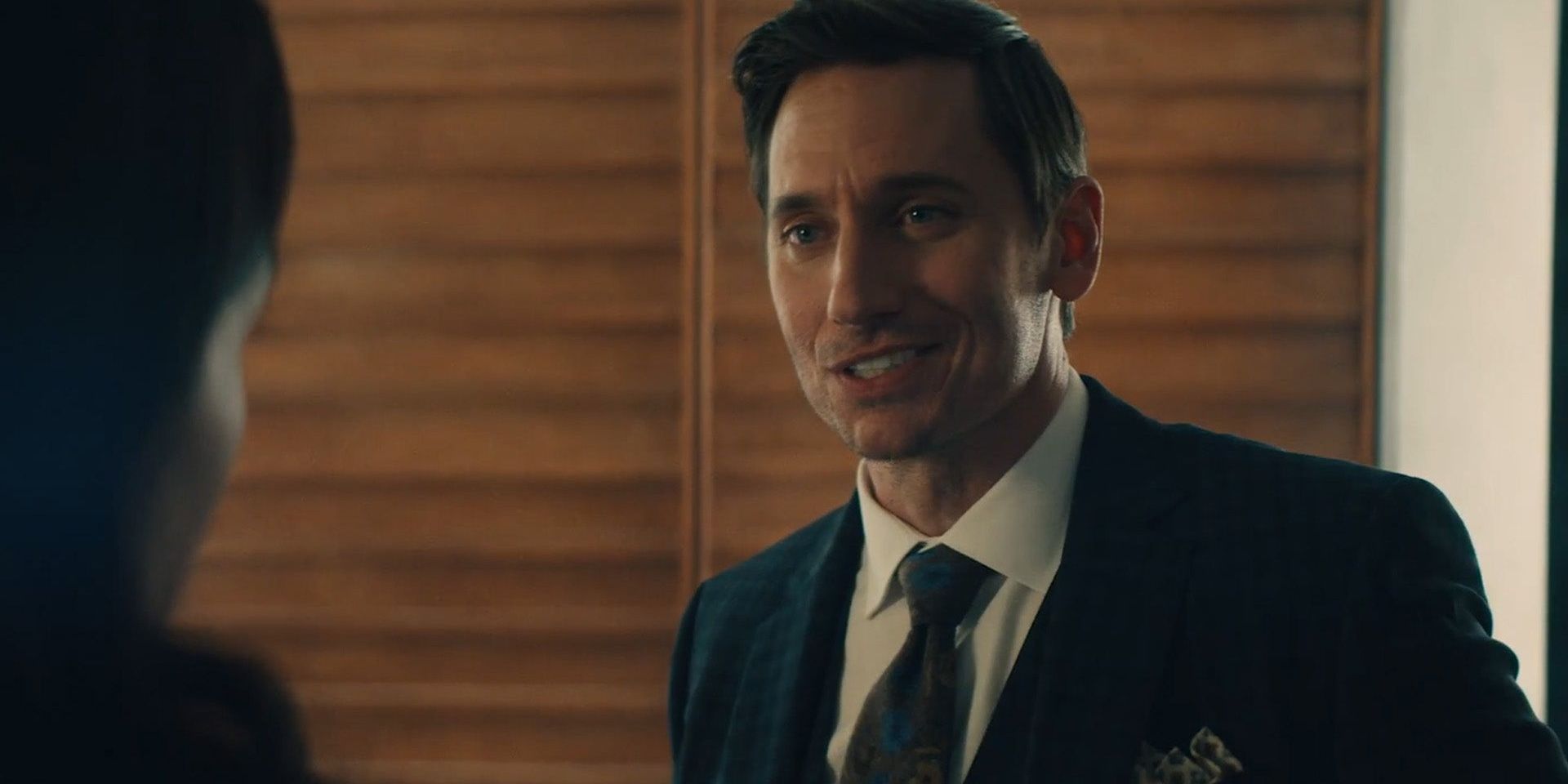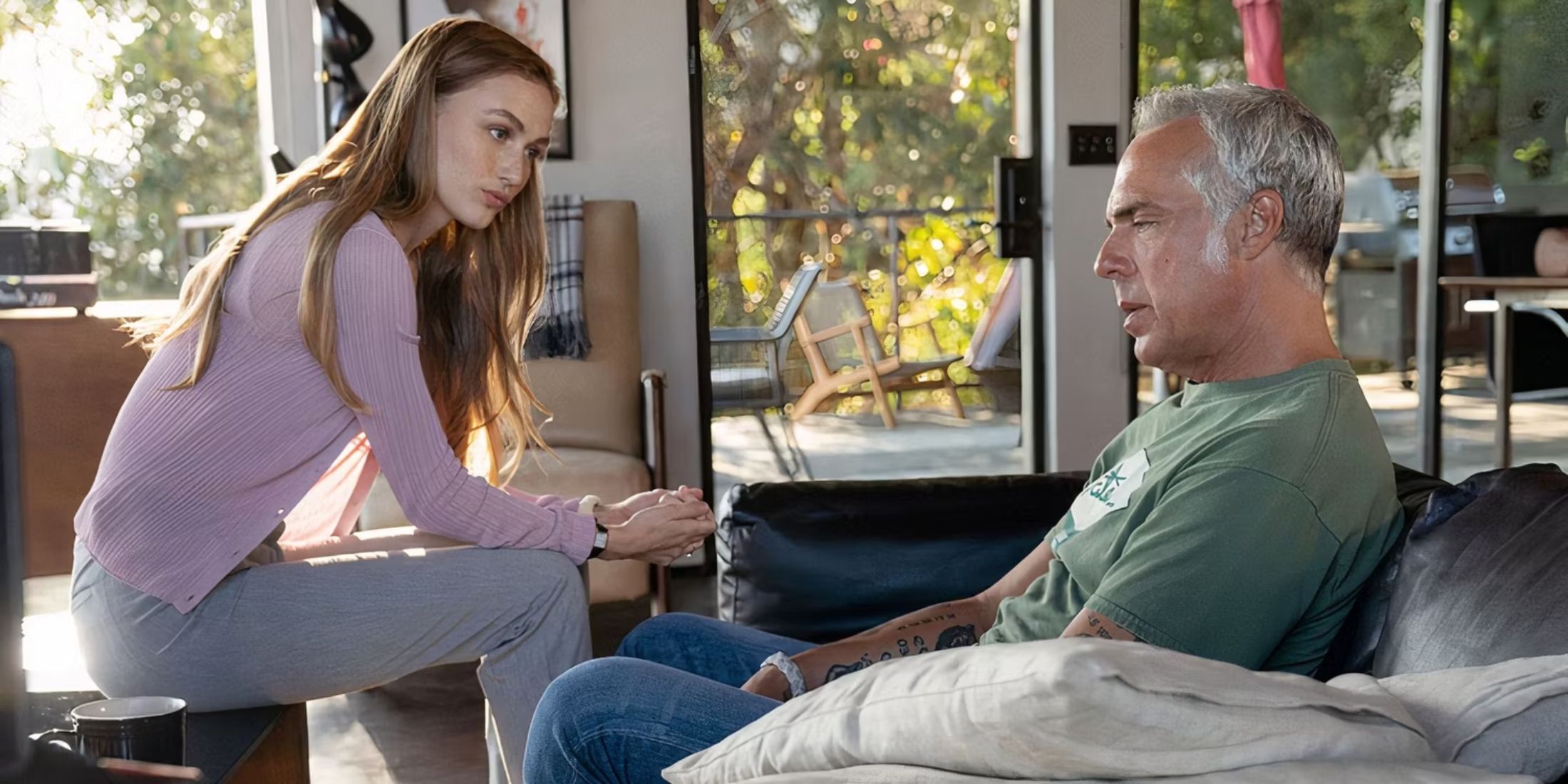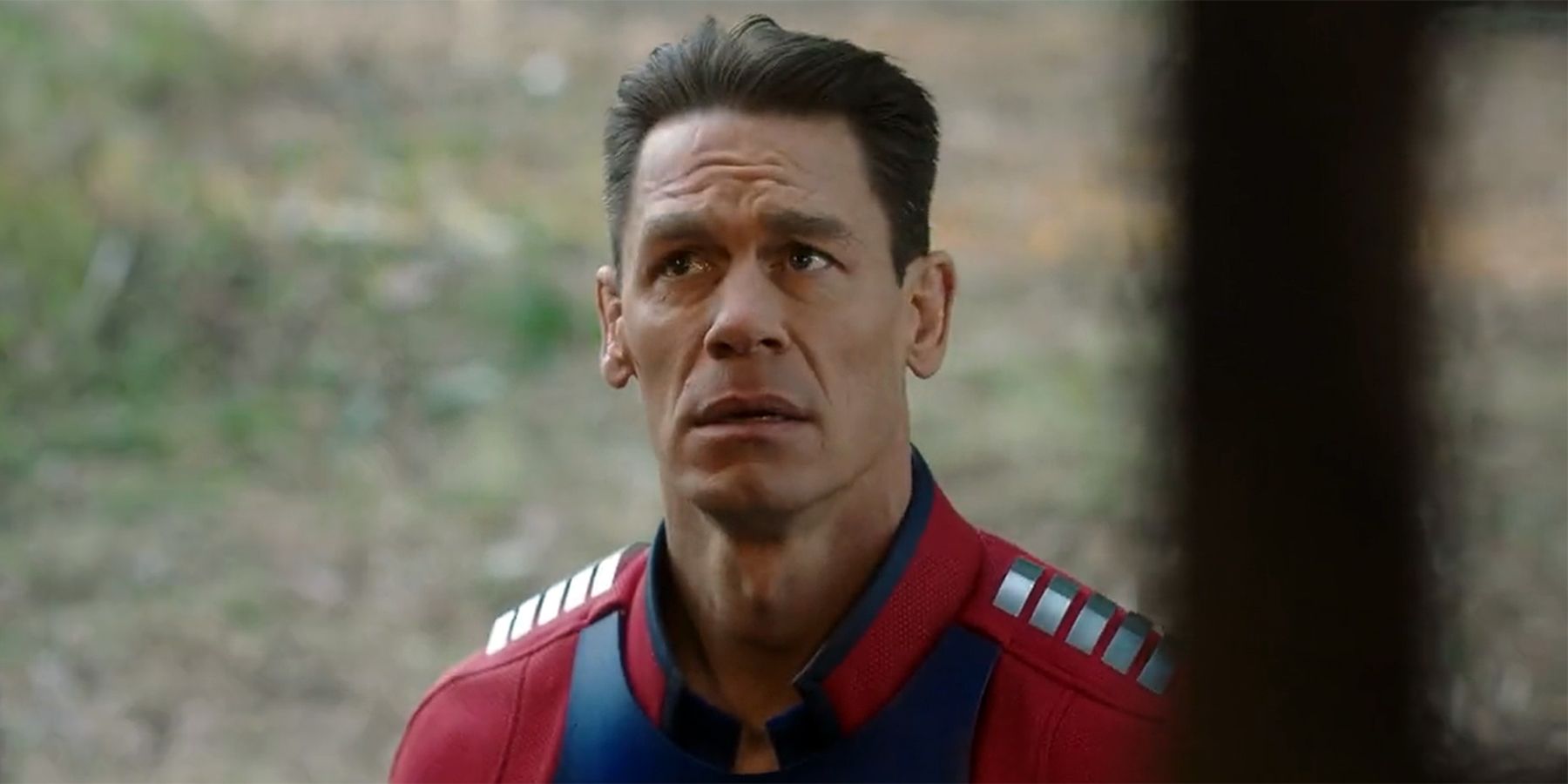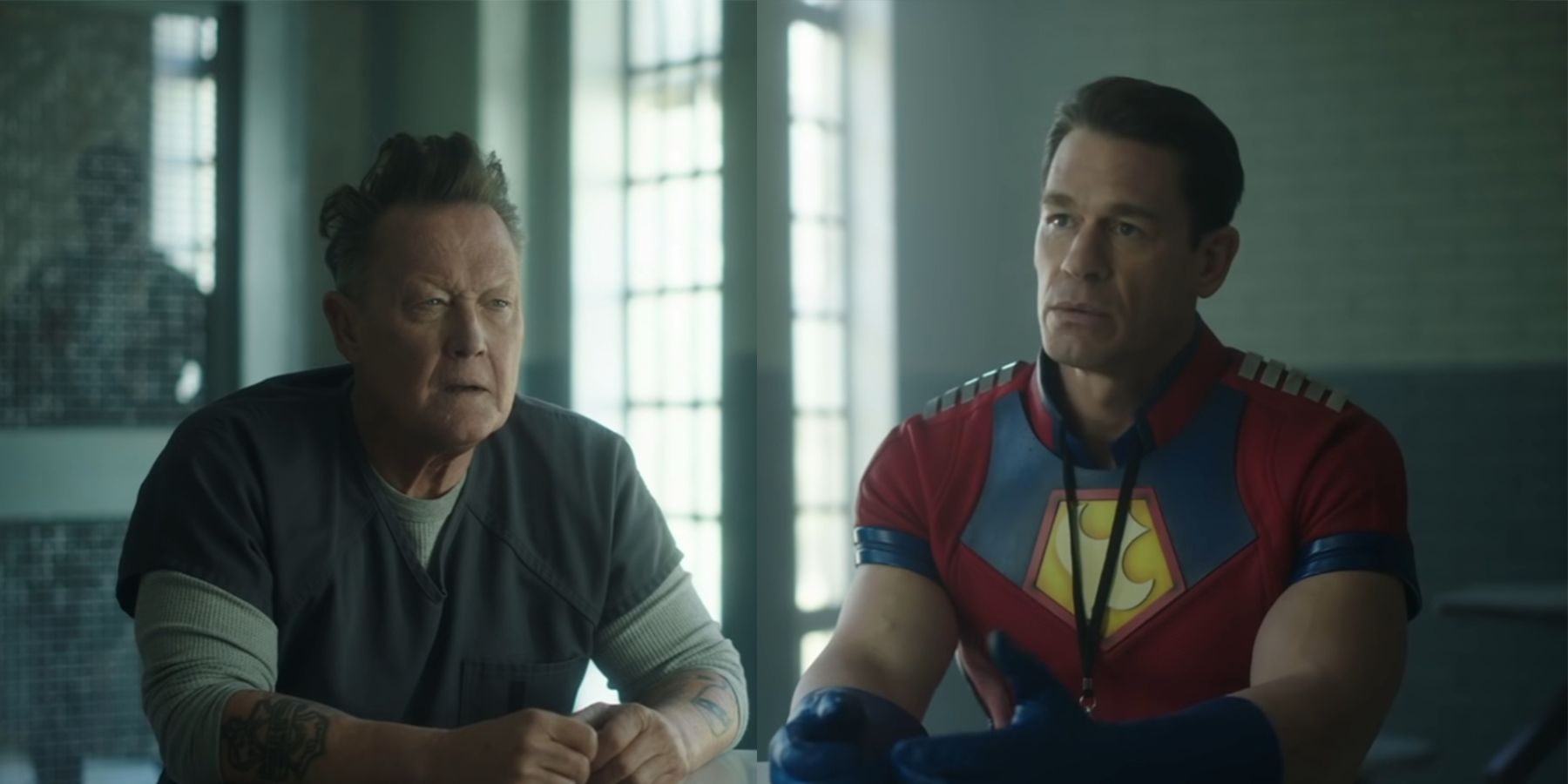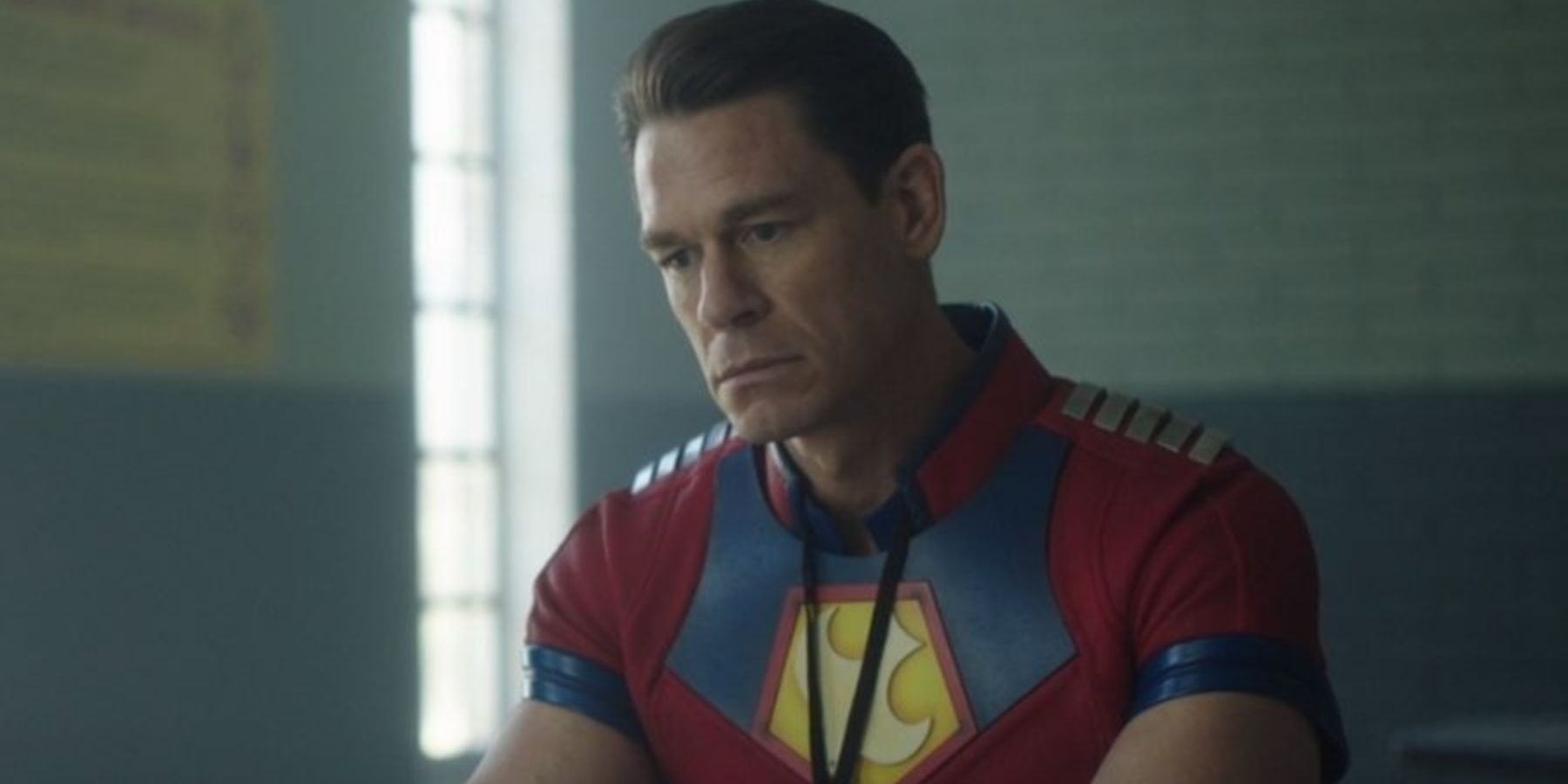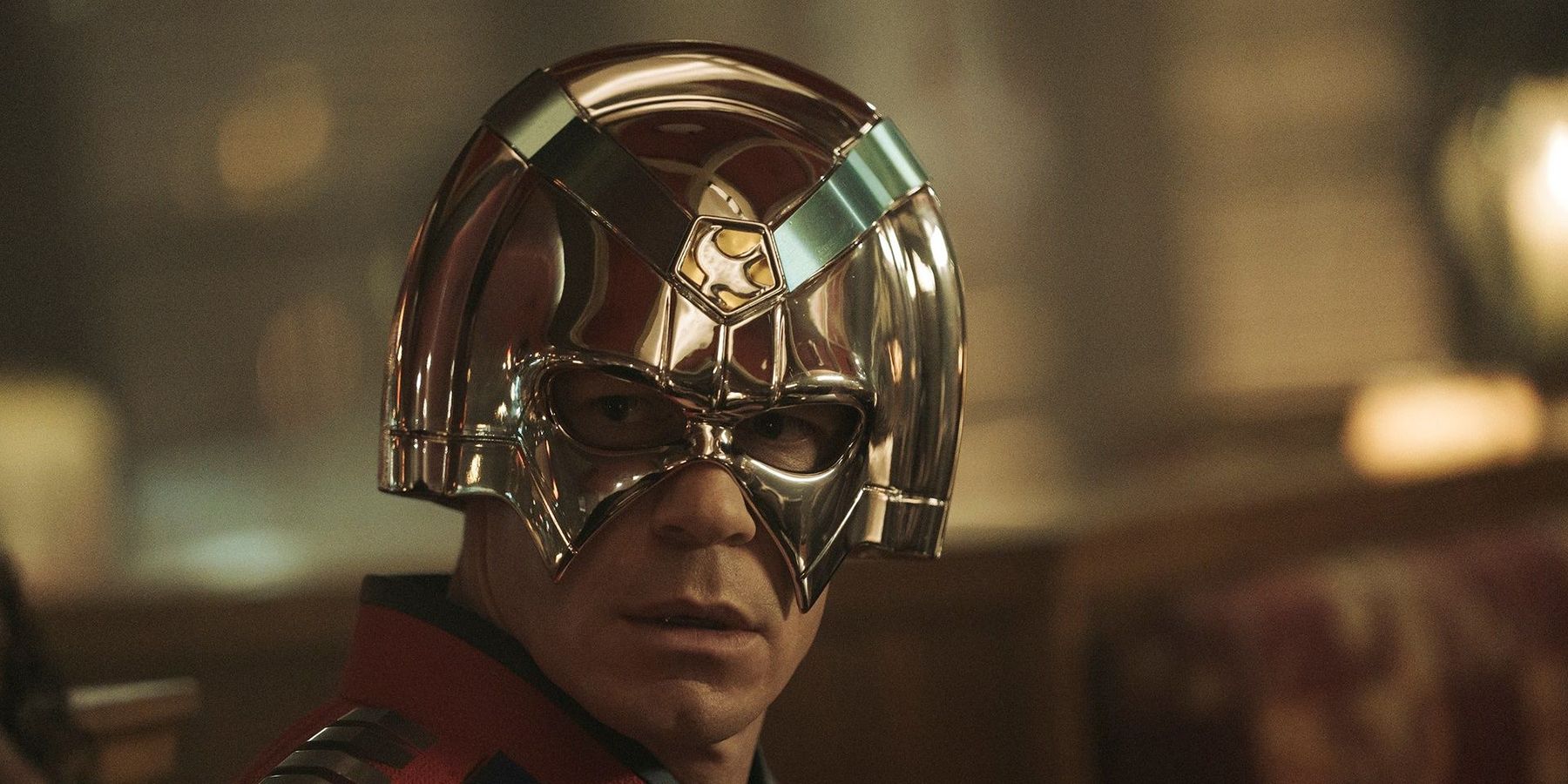This article contains spoilers for the first three episodes of Peacemaker.After making waves with last year’s The Suicide Squad, director James Gunn — the architect behind the Guardians of the Galaxy movies — continues his journey through the DC Universe with the new Peacemaker TV series on HBO Max. John Cena reprises his role as the title character, who seems to be a great deal more complex than he initially appeared.
Back in The Suicide Squad, Peacemaker certainly stood out from the rest of his teammates, but not in a good way. Unlike most of the Squad, he refused to disobey Amanda Waller’s orders to cover up Project Starfish, and ended up killing Rick Flag (Joel Kinnaman) in the ensuing battle. But while the movie portrayed Peacemaker as little more than a ruthless killer, his new spin-off series delves deeper into his characterization, showing that things aren’t quite that clear-cut.
Behind the Mask
Peacemaker’s introduction in The Suicide Squad offered a brief hint at his backstory — namely, that he was trained since childhood to be a perfect killer by his father. In the film, this serves as little more than another trait that Peacemaker shares with Idris Elba’s Bloodsport. But in the spin-off series, this throwaway line proves to be a crucial part of Peacemaker’s characterization.
Peacemaker’s father August Ransom Smith (“Auggie” for short) is introduced in the first episode, played by Robert Patrick — better known as the T-1000 from Terminator 2: Judgment Day. And as unpleasant as Peacemaker is, Auggie is even worse: he’s a cruel, spiteful bigot who derides his son for failing to live up to his lofty expectations. The end of Episode 2 even reveals that Auggie is an actual supervillain in his own right, known as the White Dragon. After seeing Auggie’s harsh, abusive treatment of his son firsthand, it’s hard not to feel sorry for Peacemaker, even after all he’s done. It’s clear to see that most of Peacemaker’s worst traits aren’t the result of any willful malice on his part, but rather products of his upbringing.
Additionally, one memorable scene in Episode 2 shows Peacemaker alone in his bedroom, experiencing a rare moment of absolute vulnerability as he breaks down sobbing from overwhelming guilt. Peacemaker is fully aware that his stubborn, belligerent attitude only serves to push everyone around him away, and he absolutely hates it. Not only that, he also shows genuine remorse over killing Rick Flag back in The Suicide Squad, and admits that Flag was right when he spoke his last words: “Peacemaker. What a joke.” After seeing Peacemaker as a cold, brutal agent of order for so long, it’s downright jarring to see him so vulnerable here.
The Path to Peace
Of course, Peacemaker’s insecurities don’t go away after just one scene. In his subsequent conversation with his partner in crime-fighting Vigilante (Freddie Stroma), Peacemaker confesses that he’s starting to feel conflicted over his mission — after killing so many people in the name of peace, the burden of all the lives he’s taken is starting to weigh heavy on him. Peacemaker’s guilty conscience is contrasted with Vigilante gleefully embracing his nature as a killer, discussing how much fun he has murdering people for crimes as minor as painting graffiti or smoking weed. Next to Vigilante, Peacemaker seems downright compassionate by comparison.
This trend continues in Episode 3, when Peacemaker is forced by his superiors to kill a US Senator’s entire family after learning they’re all being controlled by the alien beings currently known only as the Butterflies. And unfortunately, this includes the senator’s two children. Despite his claim in The Suicide Squad that “I don’t care how many men, women, and children I need to kill” for the sake of peace, Peacemaker seems to have had a change of heart since then, because he freezes up with fear once he’s confronted with the reality of having to shoot a child — even an alien-possessed one.
Once again, Peacemaker’s inner doubt is contrasted with Vigilante’s casual ruthlessness, as he’s able to kill the Butterfly-controlled children without any trouble at all. Peacemaker claims that his inability to kill his targets was because his gun didn’t have his trademark “dove of peace” symbol engraved on it. However, it’s clear that he’s actually starting to doubt the ideals he’s spent so long living by — something that never would have seemed possible back in The Suicide Squad.
Hero or Villain?
Peacemaker is certainly in a unique spot at this stage in his journey. On the one hand, he’s clearly remorseful over all the lives he’s taken, which is a clear sign of growth from his previous appearance. But at the same time, the show doesn’t attempt to whitewash what a cruel, brutish, and downright obnoxious person he is. Yet even so, he still ends up looking much better than some of the people around him, namely Vigilante and White Dragon.
There are multiple discussions throughout the show over whether Peacemaker is a superhero or a supervillain. And while the show may eventually provide a clear answer, he currently seems to land somewhere in the middle. He’s certainly not good enough to be a hero, but he’s also not quite bad enough to be a villain. But either way, Peacemaker has already proven to be a much more complex, nuanced character than he seemed to be on the surface — one who’s more than capable of carrying his own show.


